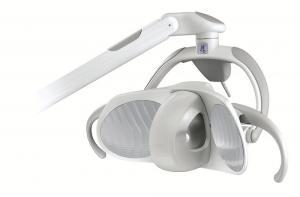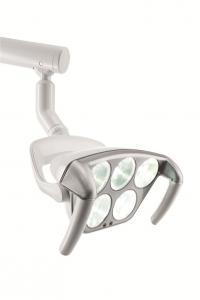Oral surgery – Wisdom tooth removal
 Wisdom teeth can cause many problems; there might not be enough space for them to erupt in a correct position, this way they partially stay covered with gum and cause frequent and painful inflammations in the posterior region of the mouth. It can also occur that they settle in an incorrect position, therefore it’s hard or nearly impossible to clean them with a normal toothbrush. Worst case scenario they can even push the other teeth more to the front and create an overcrowded situation.
Wisdom teeth can cause many problems; there might not be enough space for them to erupt in a correct position, this way they partially stay covered with gum and cause frequent and painful inflammations in the posterior region of the mouth. It can also occur that they settle in an incorrect position, therefore it’s hard or nearly impossible to clean them with a normal toothbrush. Worst case scenario they can even push the other teeth more to the front and create an overcrowded situation.
If you experience any of the above mentioned problems, we recommend to let the wisdom teeth be removed in order to preserve the other teeth and to extinguish the recurring inflammation. Before extraction we take a panoramic x-ray to correctly locate the position of the tooth and the surrounding anatomic structures. The removal of the tooth is performed under local anesthesia, therefore it is painless and only mildly unpleasant.
Following surgery it is often unavoidable that the cheeks get swollen. In this case we recommend mild cooling with ice packets. At the reception you will receive a detailed description about the dos and don’ts of the postop period. After a week our patients return to the office for control and removal of the stitches, which is free of charge, as are all the other consultational and control appointments.
Oral surgery – Root-end resection
 During root-end resection all the inflamed tissues around the root top plus a part of the root are being removed in a surgical procedure under local anesthesia.
During root-end resection all the inflamed tissues around the root top plus a part of the root are being removed in a surgical procedure under local anesthesia.
This intervention is needed in cases where conservative methods doesn’t work. For example, if there is a great chronic inflammation with a fistula, or if an appropriate root canal filling can not be performed due to ramifications of the channel. It is also applicable if the root apex is in the cyst of the jawbone and the dentist decides to keep the affected tooth.
Prior to the resection we have to perform a root canal filling. If there is a previously existing root canal filling, we change that.
After the operation swelling is common, therefore we recommend to cool the operational area with ice afterwards. Maintaining proper oral hygiene is of utmost importance: try to brush your teeth more frequently than usual. At the reception you will receive a detailed description about the dos and don’ts of the postop period. After a week our patients return to the office for control and removal of the stitches, which is free of charge, as are all the other consultational and control appointments.
Oral surgery – Cyst-removal
Cysts of the oral cavity are hoses that are padded with epithelium and have a wall that consists of connective tissue. They are usually filled with a light yellowish fluid. It is typical for them to expand with time, due to the pressure of this expansion the surrounding bone resorbs as the cyst grows. In severe cases this can even lead to the fracture of the jaw. Teeth tend to resist the absorption but their roots are being pushed apart, which does not cause any problems at the beginning but with time, the crowns can lean towards each other. Cysts often only present symptoms after a longer period of time, therefore we discover them accidentally.
If you experience migration of your teeth without any obvious cause (wisdom tooth), please visit a specialist for further examination!
Cysts have to be removed surgically. We intend to remove the whole epithelial hose of the cyst (if any part of it remains, the cyst can return) and if possible, fill the defect of the bone with some substance to ensure the healing of the defect.
The location of the cyst sometimes requires different surgical approaches. The intervention can be performed under local or total anesthesia. After the incision on the mucosa we raise a flap and create an access to the cyst through the bony wall with a little bur. Once we have clear access, we remove the cyst.
If the cyst is small, the size of a cherry or smaller, the defect will heal by itself. If it was bigger, we have to apply some material to fill the defect. This can be autogenous bone or some kind of biomaterial used for bone augmentation purposes. Younger patients in general tend to heal better than elderly people. The total healing of the bone can take up to 1-2 years.
Post surgical advice: Try to avoid eating while the anesthesia still works and keep a dairy-free diet for 3-4 days! Swelling of the cheeks is normal after surgery, try to cool the swollen area. Don’t, under any circumstances use mouthrinses for at least a week after surgery.
Proper oral hygiene is very important, try to brush as many times as possible but be careful with the stitches.
Take painkillers if necessary!
At the reception you will receive a detailed description about the dos and don’ts of the postop period. After a week our patients return to the office for control and removal of the stitches, which is free of charge, as are all the other consultational and control appointments.
Oral surgery – Tooth extraction
A fogak eltávolításának leggyakoribb oka az előrehaladott fogszuvasodás. A nem megmenthető fogakat, foggyökereket el kell távolítani, mert a szervezetben gyulladást, gócot okozhatnak. A rossz pozícióban növő, de ép fog is eltávolításra kerülhet, ha másik, fogászati szempontból értékesebb fogat (rágásban jobban résztvevő fogat) a növekedésben vagy a megfelelő tisztásban akadályoz; ez általában a bölcsességfogakra vonatkozóan merül fel.
A foghúzás előtt röntgenfelvétel készítése szükséges.
A foghúzás nem tartozik a sebészeti beavatkozások közé, általában helyi érzéstelenítésben végezzük, és semmilyen fájdalommal, vagy jelentős kellemetlenséggel nem jár.
Létezik az ún. sebészeti fogeltávolítás is; ilyen esetben a fogat erre a célra kialakított speciális eszközökkel távolítjuk el, majd a foghúzás helyét összevarrjuk, így a seb gyorsabban gyógyul. A varratot kb. 7 nappal a fog húzása után a kontroll vizsgálat során el kell távolítani, amely szintén fájdalmatlan.
A beavatkozás után munkatársaink részletes írásos anyagot adnak az utókezelés részleteire vonatkozóan; a legfontosabb instrukciók a következők:
nem szabad öblögetni;
amíg az érzéstelenítő hatása tart, nem ajánlatos enni;
2-3 napig kerülni kell a tejtermékeket;
előfordulhat duzzanat, ami jegeléssel csillapítható;
fájdalom esetén fájdalomcsillapító szedése javasolt;
amennyiben az orvos úgy rendeli, antibiotikum szedése javasolt;
ritkán, de előfordulhat szájzár, amit azonnal jelezzen orvosának.
Egy hét után varratszedésre és kontrollvizsgálatra hívjuk vissza pácienseinket – mely csakúgy, mint rendelőnkben az összes többi fogászati ellenőrzés, illetve konzultáció – ingyenes.
Call us for a free consultation
+36 1 212 4272
+36 20 515 6271



